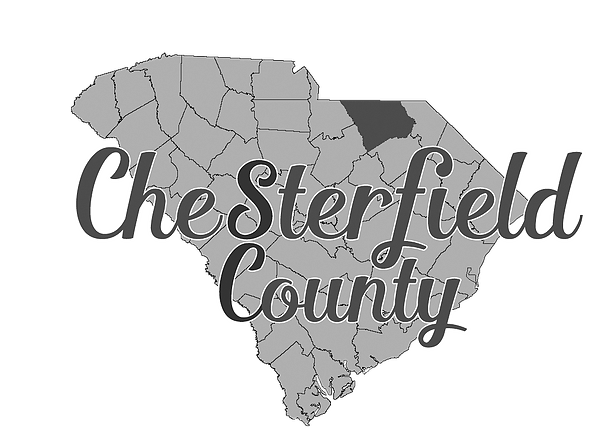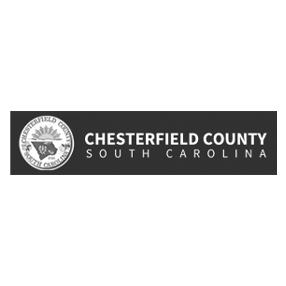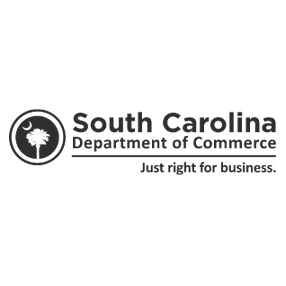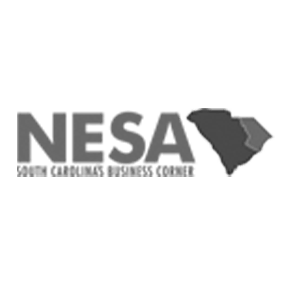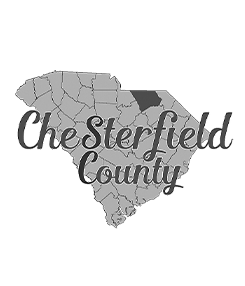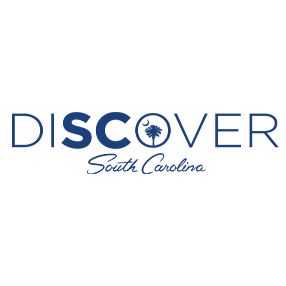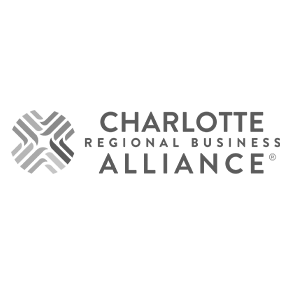DOING BUSINESS HERE
PRO-BUSINESS ENVIRONMENT
We're a pro-business environment with competitive advantages
COST OF DOING BUSINESS
Each year, South Carolina is ranked by many of the top business publications as one of the most cost-effective locations to open a business. Our competitive advantages at both the state and local level sets us apart from our competition. Our pro-business environment remains after you’ve selected Chesterfield County as your new home. More than 80% of our new announcements are from existing industry!
The Chesterfield County Development staff can assist you with creation of a specific state and local tax and incentive summary for your project. The following is a summary of tax and incentive information for your review.
PROPERTY TAX
In South Carolina, only local governments may levy property taxes. A company’s property tax liability is a function of: Property Value x Assessment Ratio x Millage.
To determine Fair Market Value, real property is appraised, while tangible personal property is recorded at cost and then depreciated based on a statutory depreciation rate (for manufacturers) and income tax depreciation (for other businesses). The Fair Market Value is then assessed at rates established in the South Carolina Constitution. The local millage rate is applied to the assessed value to determine the property taxes. Millage rates in South Carolina are site specific and set annually by local government. A mill is equal to $0.001.
Property Tax Exemptions may include inventories (raw materials, work-in-progress, finished goods), intangibles (stocks, dividends, interest) and pollution control equipment.
A partial Property Tax Exemption, called an abatement, may be made available to manufacturing, research and development, corporate headquarters, office and distribution facilities meeting certain requirements.
Companies may also be able to negotiate a Fee-in-Lieu (FILOT) of property taxes with Chesterfield County, which can greatly reduce their property tax liability. This property tax incentive is offered at the discretion of local governments. Companies investing as little as $2.5 million dollars may negotiate this exemption with the county in which they locate. This incentive creates significant savings for companies by lowering the assessment ratio from 10.5% for manufacturers to as low as 6% or even 4% for companies investing more than $150 million and creating at least 150 jobs.
CORPORATE TAX
At 5%, South Carolina’s Corporate Income Tax Rate is among the lowest in the Southeast. The state uses a single factor sales formula for apportioning income.
Many companies qualify for a Job Tax Credit, which eliminates up to 50% of a company’s corporate income tax liability for a specified number of years. As a SC Tier III County, Chesterfield County can provide up to $21,250 per job for five years in Jobs Tax Credits for new or expanding companies. Unused credits can be carried over for 15 years.
The Corporate License Tax Rate is $1 for each $1,000 of capital stock and paid-in or capital surplus, plus a $15 annual fee.
SALES TAX
South Carolina’s sales and use tax rate is 6%. Counties, by approval of a majority of county voters, may assess an additional 1-2% local option sales tax. Proceeds go towards infrastructure improvements or a rollback of property taxes. A variety of sales tax exemptions for companies is offered.
INCENTIVES
SOUTH CAROLINA & CHESTERFIELD COUNTY
GROWTH INCENTIVES
Successful businesses require growth. Chesterfield County and the State of South Carolina offer an array of grants and incentives to help businesses that invest in South Carolina.
DISCRETIONARY STATE INCENTIVES
JOB DEVELOPMENT CREDIT
A Job Development Credit (JDC) is a discretionary, performance-based incentive that rebates a portion of new employees’ withholding taxes that can be used to address the specific needs of individual companies. JDCs are approved on a case-by-case basis by the S.C. Coordinating Council for Economic Development. To qualify, a company must meet certain business requirements and the amount a company receives depends on the company’s pay structure and location.
ECONOMIC DEVELOPMENT SET-ASIDE PROGRAM
The Economic Development Set-Aside Program assists companies in locating or expanding in South Carolina through road or site improvements and other costs related to business location or expansion. Overseen by the Coordinating Council for Economic Development, it is the Council’s primary business development tool for assisting local governments with road, water/sewer infrastructure, or site improvements related to business location or expansion.
ENTERPRISE ZONE RETRAINING CREDIT PROGRAM
The Enterprise Zone Retraining Credit Program helps existing industries maintain their competitive edge and retain their existing workforce by allowing them to claim a Retraining Credit for existing production employees. If approved for the Enterprise Zone Retraining Credit, companies may claim a credit of up to $1,000 per employee against withholding taxes. This program is administered by the State Board for Technical and Comprehensive Education.
RURAL INFRASTRUCTURE FUND
The Rural Infrastructure Fund (RIF) assists qualified counties in the state’s rural areas by providing financial assistance for infrastructure and other activities that enhance economic growth and development. It can be used for job creation and/or product development. Qualified counties are designated as “Tier III” or “Tier IV” by the Department of Revenue and have received approval for an economic development strategic plan by the Coordinating Council for Economic Development.
PORT VOLUME INCREASE CREDIT
South Carolina provides a possible credit against income taxes or withholding taxes to entities that use state port facilities and increase base port cargo volume by 5% over base-year totals. To qualify, a company must have 75 net tons of non-containerized cargo or 10 loaded TEUs transported through a South Carolina port for their base year.
The Coordinating Council has the sole discretion in determining eligibility for the credit and the amount and type of credit that a company may receive. The total amount of tax credits allowed to all qualifying companies is limited to $8 million per calendar year. A company must submit an application to the Coordinating Council to determine its qualification for, and the amount and type of, any tax credit it will receive.
CHESTERFIELD COUNTY ACCOMMODATIONS TAX GRANTS
The Chesterfield County Accommodations Tax Grant program supports new or expanding tourism or recreation facilities, events, and organizations through infrastructure and marketing grants. This program is generated from a share of the state accommodations tax on qualified lodging establishments and is overseen by the Chesterfield County Accommodations Tax Committee.
THE COORDINATING COUNCIL FOR ECONOMIC DEVELOPMENT
The Coordinating Council for Economic Development, established in 1986 by the General Assembly, was formed in response to a general need for improved coordination of economic development efforts by those state agencies involved in the recruitment of new business and the expansion of current enterprises throughout the state. The Council consists of the heads or board chairs of 11 state agencies concerned with economic development: S.C. Department of Commerce, State Ports Authority, S.C. Department of Parks, Recreation & Tourism, S.C. Department of Agriculture, S.C Technical College System, S.C. Research Authority, S.C. Department of Employment and Workforce, S.C. Department of Revenue, Jobs for Economic Development Authority, S.C. Department of Transportation and Santee Cooper.
CORPORATE INCOME TAX CREDITS
JOB TAX CREDITS
South Carolina rewards qualifying businesses for creating new jobs—in Chesterfield County, a Jobs Tax Credit of $20,250 per job, for five years. Unused credits can be carried forward 15 years.
MULTI-COUNTY INDUSTRIAL PARK
In South Carolina, a county may join with another county to form a “multi-county industrial park,” which raises the value of the Jobs Tax Credit by $1,000 per job.
CORPORATE HEADQUARTERS CREDIT
To offset the costs of relocating or expanding corporate headquarters, the state provides credit equal to 20% of the development, construction or direct lease costs during the first five years of operations.
ENHANCED CORPORATE HEADQUARTERS CREDIT
An Enhanced Headquarters Credit—equal to 20% of the personal property costs of establishing the headquarters—is offered to eligible companies when employee compensation levels exceed 1.5 times the state per capita income average.
RESEARCH & DEVELOPMENT TAX CREDIT
South Carolina offers a credit equal to 5% of the taxpayer’s qualified expenditures for research and development made in the state. The credit taken, in any one tax year, may not exceed 50% of the company’s remaining tax liability after all other credits have been applied. Any unused portion of the credit can be carried forward for 10 years from the date of the qualified expenditure.
STATE SALES TAX CREDITS
Out-of-state sales are exempted. Use Tax credits are available for tangible personal property purchases made out of state.
EXEMPTIONS INCLUDE STATE SALES TAX ON:
- Manufacturing machinery and equipment.
- Research and development machinery and equipment.
- Repair parts.
- Materials that will become a integral part of a finished product.
- Electricity or other fuels used in the manufacturing process.
- All pollution control equipment.
- Packaging materials.
- Long distance telecommunications, including 800 services.
- Material handling equipment for manufacturers and distributors investing $35 million or more.
LOCAL INCENTIVES
FIVE-YEAR PROPERTY TAX ABATEMENT
Manufacturers, distributors and certain other kinds of businesses are exempt from County Ordinary and County Operating Taxes for the first five years of operations. This results in an average 30-35% reduction in both real and personal property taxes for the first five years.
ADDITIONAL INCENTIVES
FEE IN LIEU OF PROPERTY TAXES (FILOT)
The CCEDB has the authority to offer a FILOT to companies that meet the criteria set forth annually by the South Carolina Department of Revenue in their publication, South Carolina Tax Incentives for Economic Development. Any FILOT will be applied to new investment or expanding real and personal property only and will not include existing property currently on the Chesterfield County tax digest.
SUPER AND ENHANCED INVESTMENT FEES
The CCEDB has the authority to offer of a Super or Enhanced Investment Fee to companies that meet or exceed the minimum criteria set forth annually by the South Carolina Department of Revenue in their publication, South Carolina Tax Incentives for Economic Development. As of 2020, the statutory minimum requirement for this incentive was $150 million investment and 125 new jobs. This incentive reduces the company’s property tax assessment to 4% for up to 40 years. Any Special Source Revenue Credits (SSRC) offered in addition to a Super or Enhanced Investment Fee will be evaluated and preliminarily approved by the county administrator prior to being offered.
SPECIAL SOURCE REVENUE CREDIT (SSRC)
The Special Source Revenue Credit (SSRC) is a rebate of a percentage of the Fee Agreement payments for a negotiated period of time. This incentive is at the discretion of the CCEDB and Chesterfield County government. The amount of the SSRC and the number of years are negotiated and based on the type of project, total investment, job creation, and average wages.
SPECIAL SOURCE REVENUE BOND (SSRB)
The CCEDB asks that Chesterfield County provide it with the authority to negotiate a SSRB with companies meeting the following minimum criteria: $20 million capital investment, 100 jobs, and county average wage rate. A SSRB effectively bonds the revenue stream associated with a SSRC and provides companies with upfront cash. Essentially, a SSRB is a front-end reimbursement of a percentage of the company’s property taxes over time. Please note that the CCEDB reserves the right to ask for a special letter of conditions from the county administrator and subject to approval by Chesterfield County Council should a quality company be interested in locating in the county and not precisely fit the above criteria. Limited claw-back provisions would be a part of any SSRB agreement.
INDUSTRIAL REVENUE BONDS
For qualifying projects, and companies that obtain external letters of credit for collateral, Chesterfield County agrees to assist by serving as a conduit for low-interest Industrial Revenue Bonds (IRBs). Companies may also utilize the South Carolina Jobs Economic Development Authority (JEDA) as an IRB conduit. All parties agree that IRB financing is a non-recourse, non-obligation financing instrument.
EXPEDITED PERMITTING
Certain projects require commitment from the local leadership to expedite permitting and plan review. To the extent allowed by local and state law, Chesterfield County will commit to assist projects with expedited permitting as needed.
Chesterfield County Economic Development - All Rights Reserved.
Site Design By Strong Bird Designs, LLC






